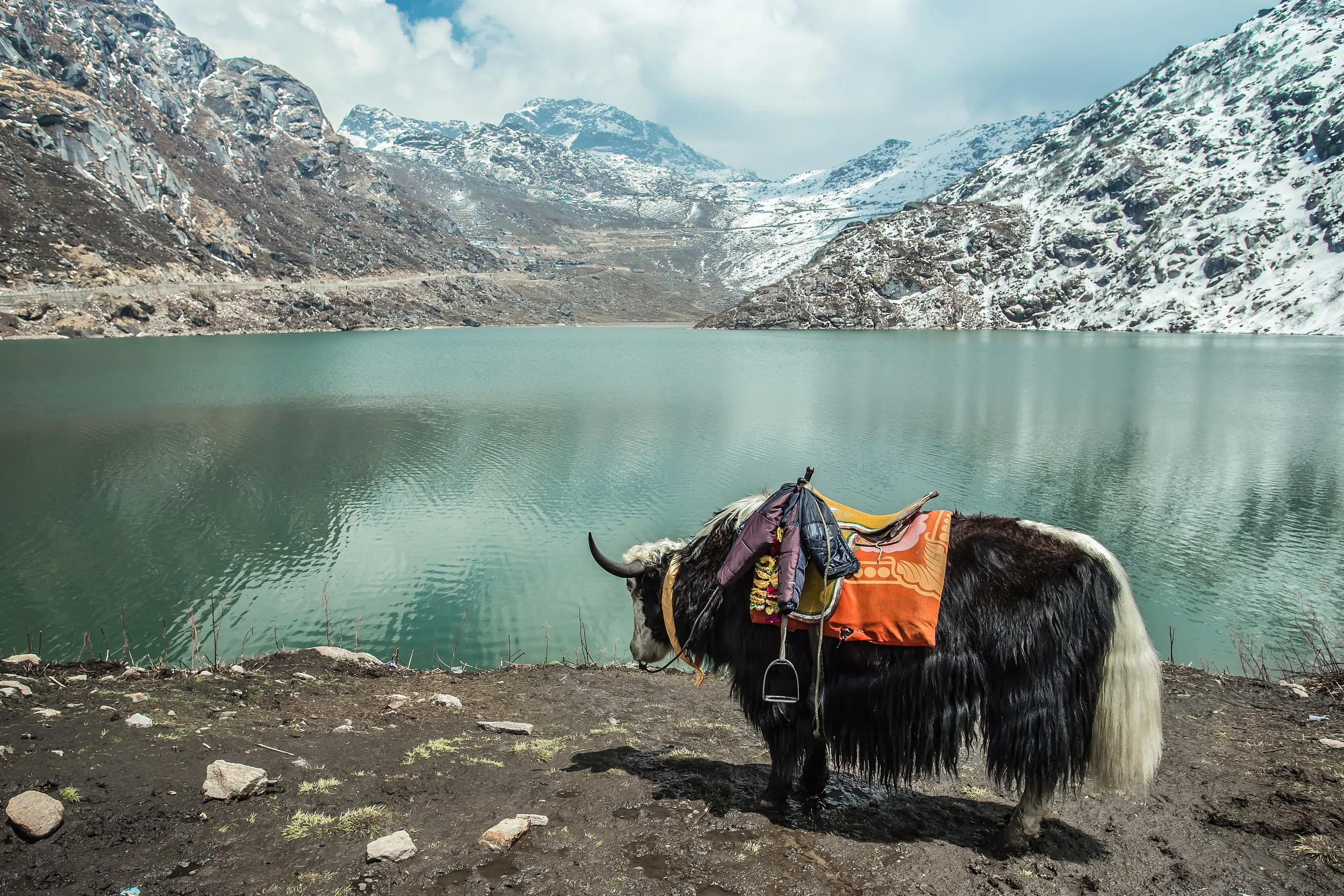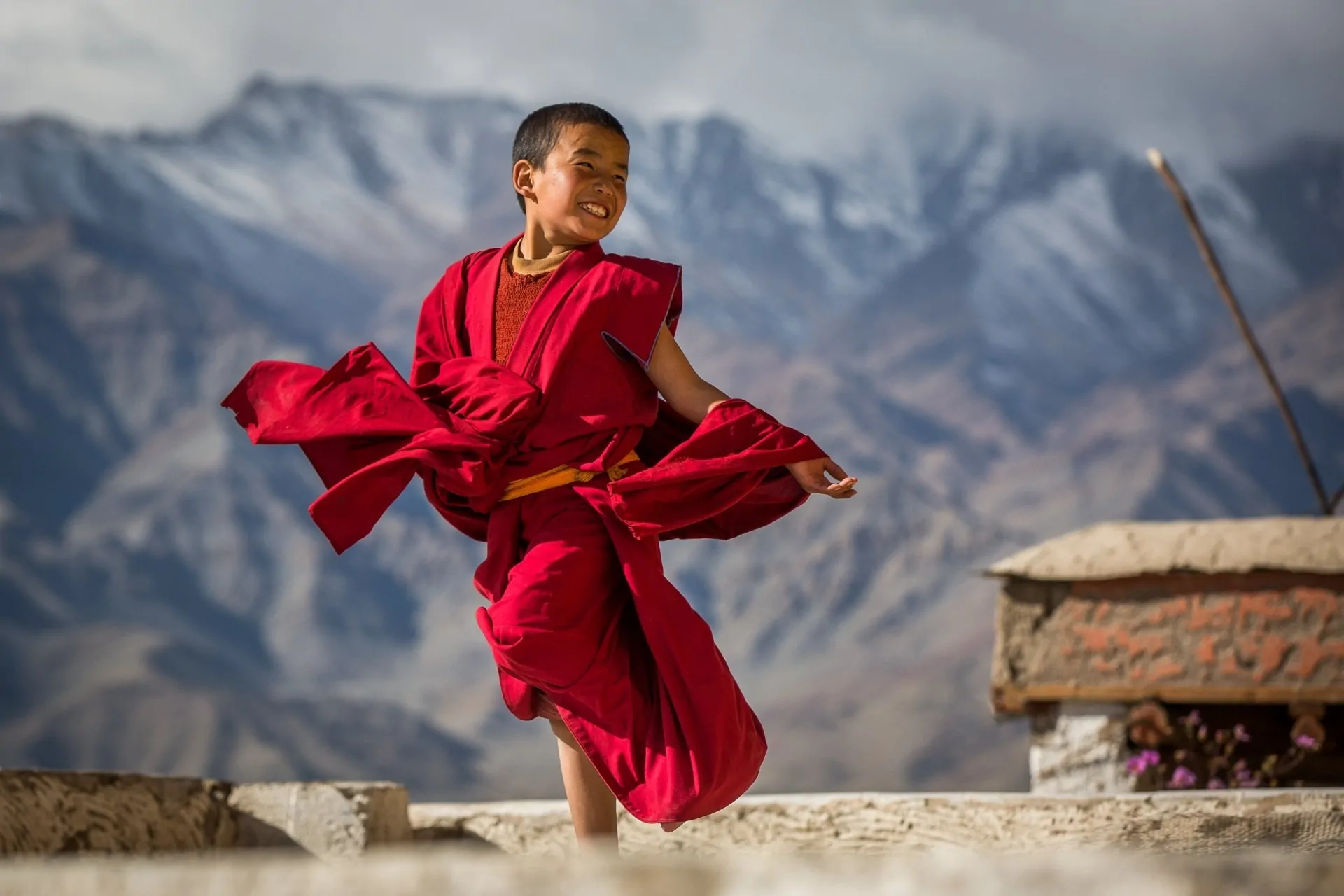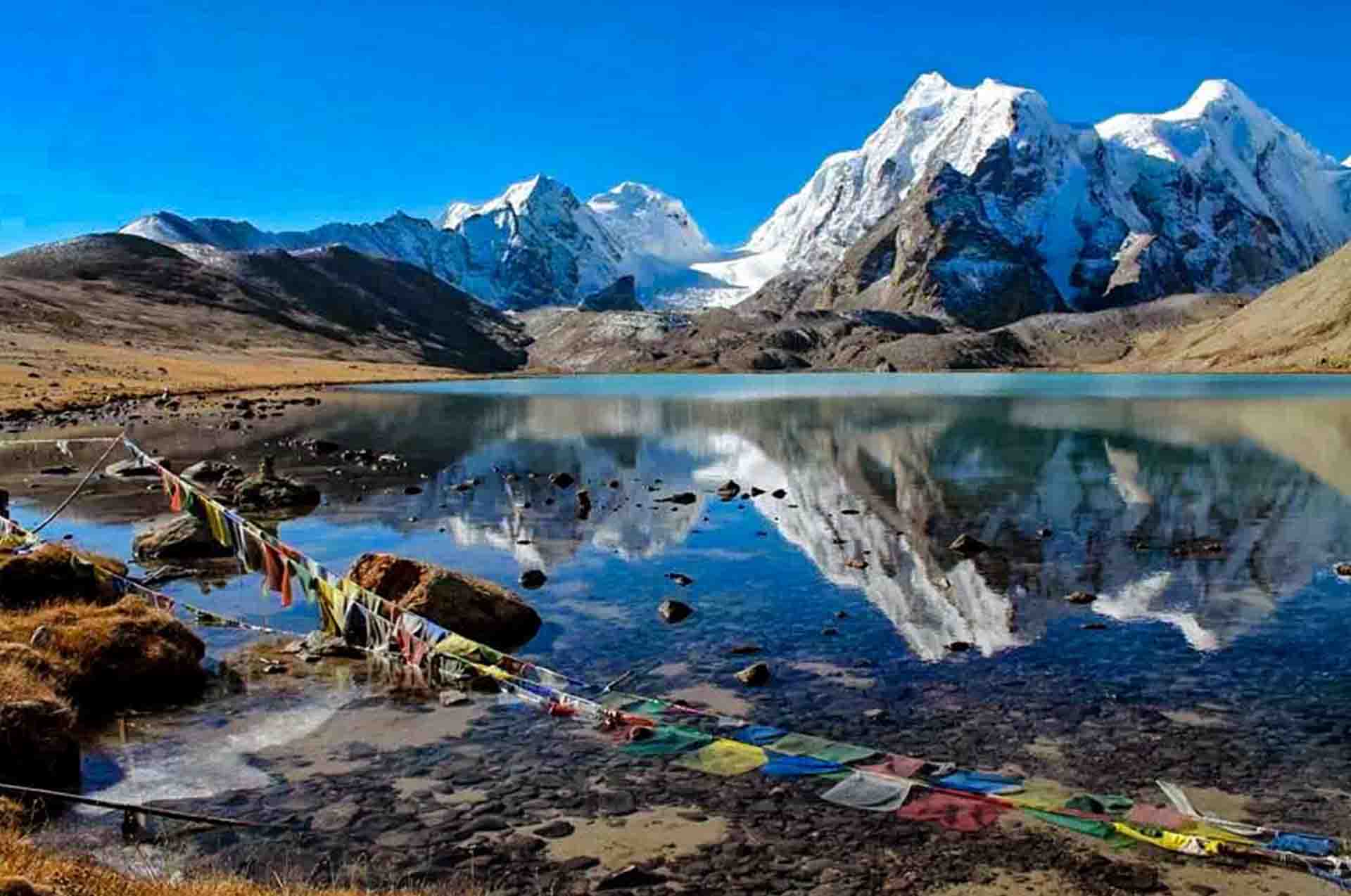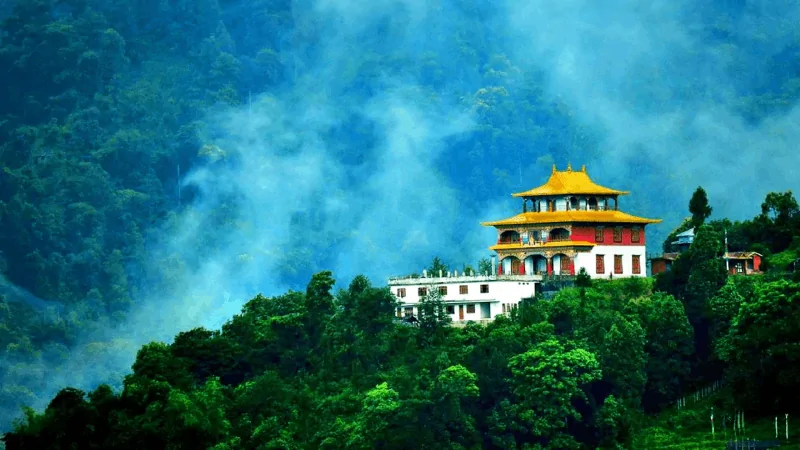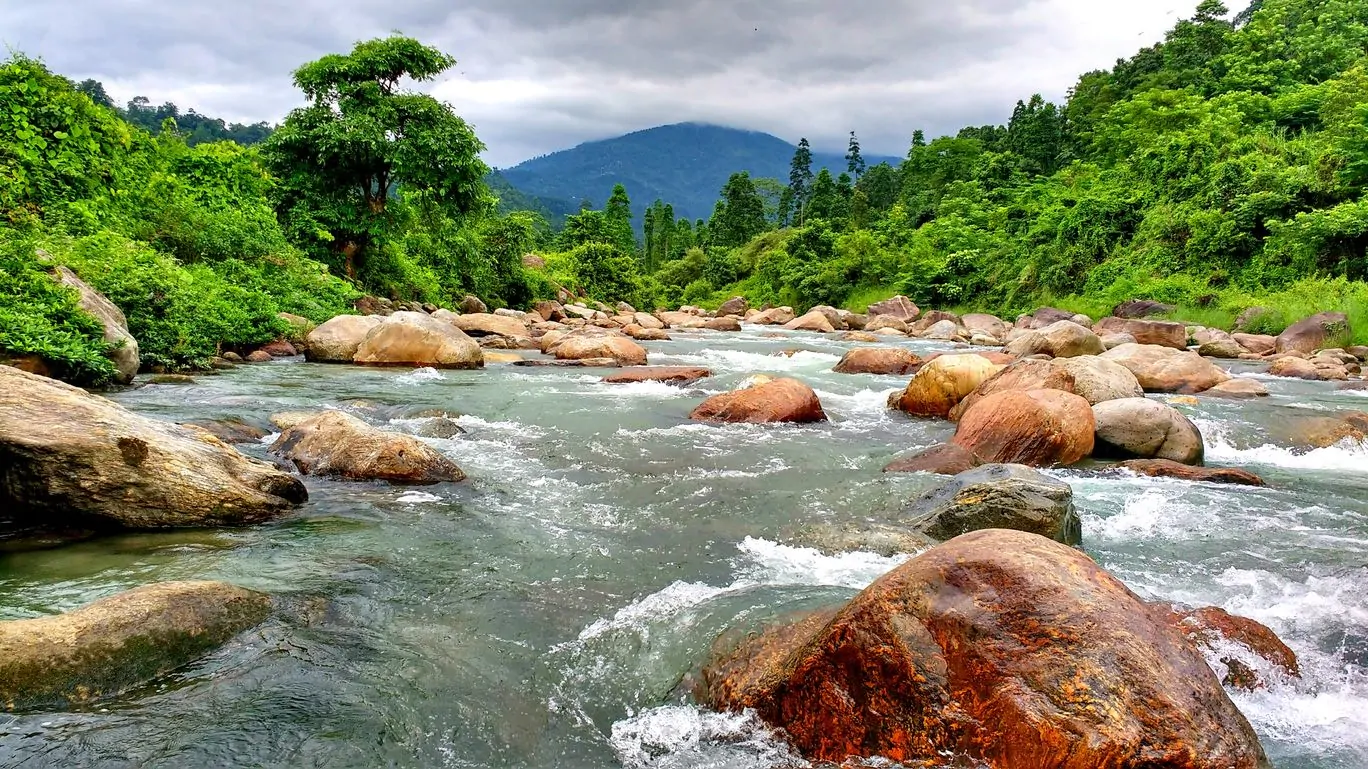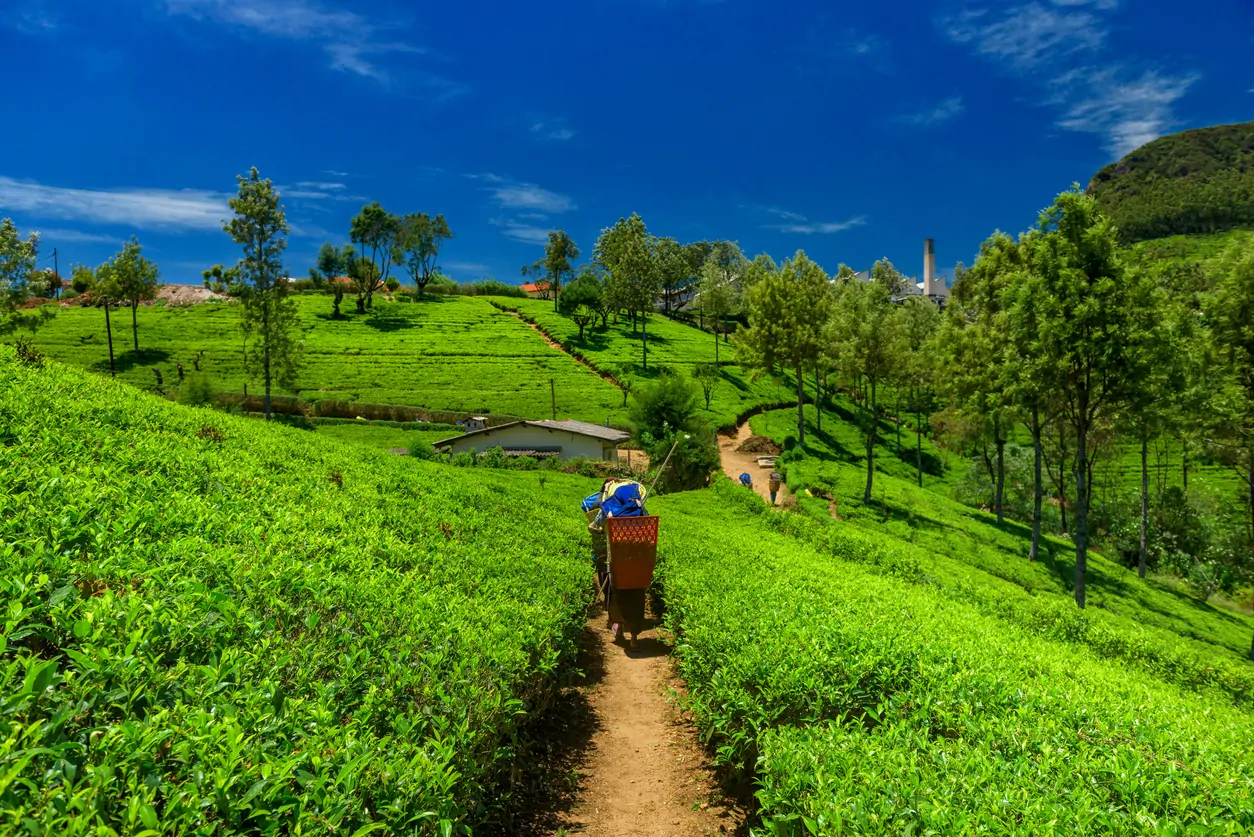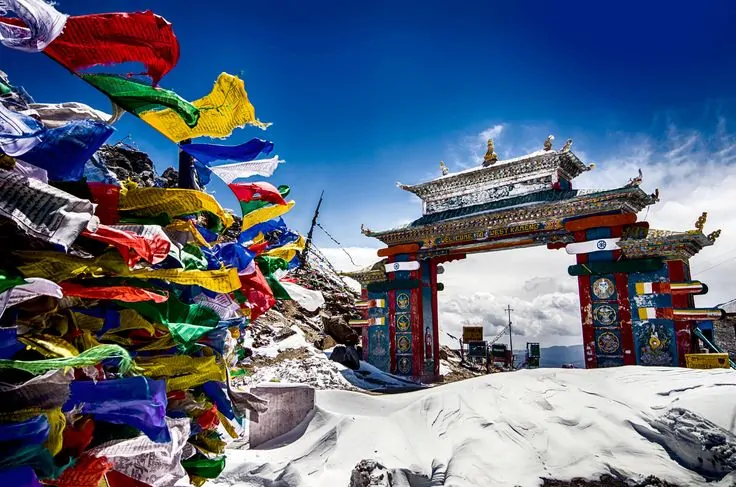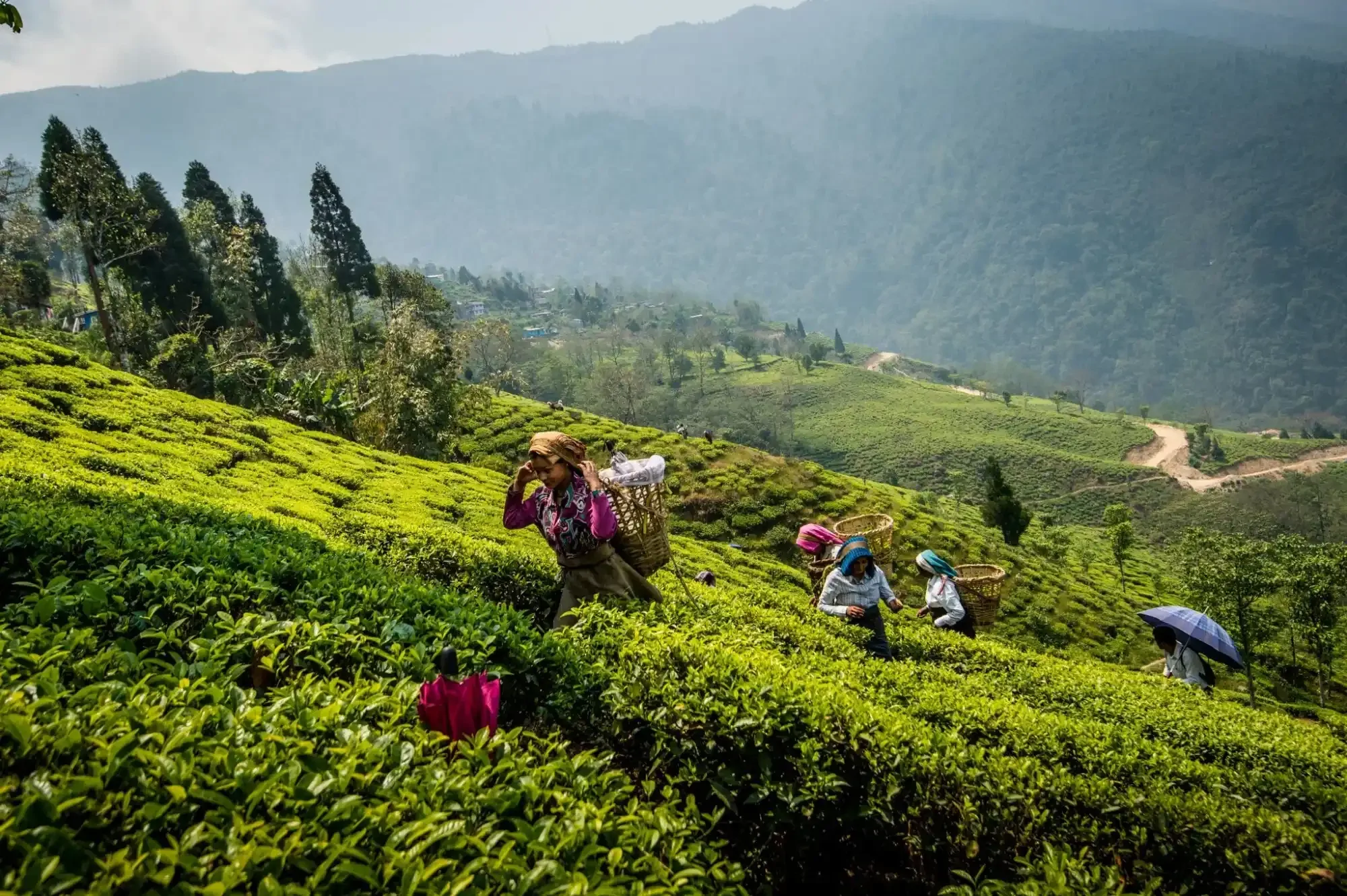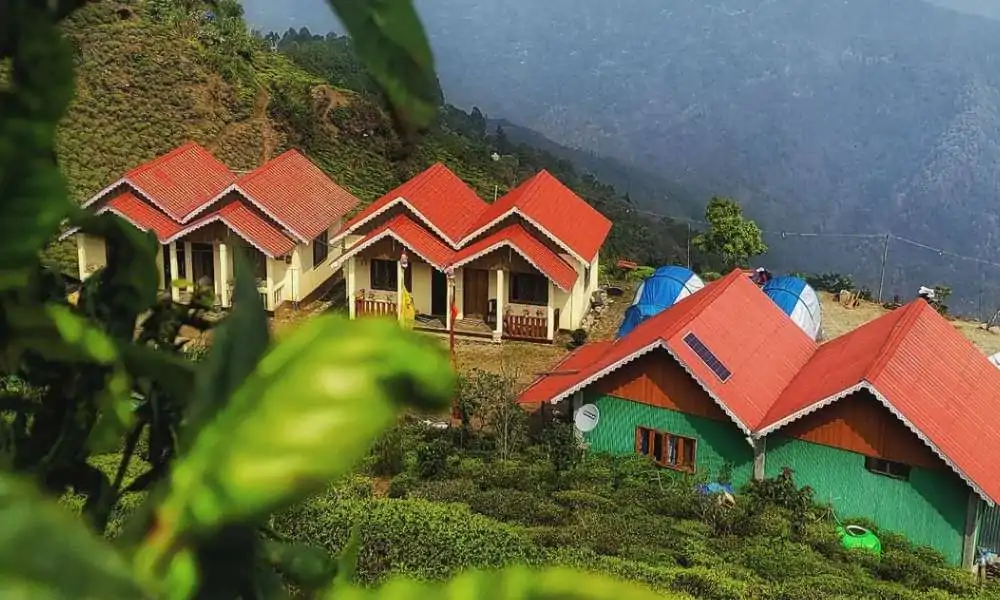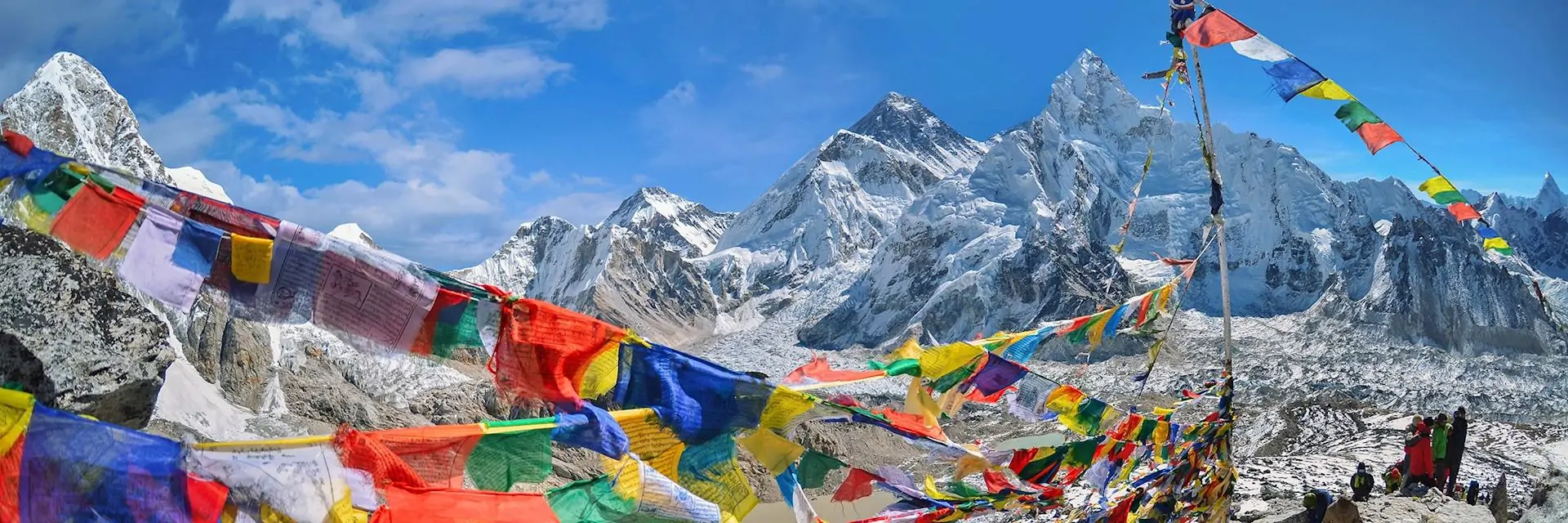Tsomgo Lake: A Glacial Marvel
Perched at an altitude of 12,313 feet, Tsomgo Lake, also known as Changu Lake, is a mesmerizing glacial lake that captivates visitors with its ethereal beauty. Located around 41.2 kilometers from Gangtok, the capital of Sikkim, the lake is surrounded by rugged mountains that are often blanketed in snow, adding to its pristine charm.
Tsomgo Lake changes colors with the seasons—turquoise in summer, icy blue in winter, and surrounded by vibrant rhododendrons during spring. This ever-changing palette makes it a photographer’s paradise. During the winter months, the lake freezes, transforming into a mirror-like surface reflecting the surrounding peaks. The sight of yaks grazing along the shores and the fluttering prayer flags around the lake adds to the serene and mystical atmosphere.
For the adventurous, a yak ride around the lake offers a unique experience, allowing you to soak in the natural beauty from a different perspective. The lake is also considered sacred by the local Buddhists, who believe that it possesses healing properties. Visiting Tsomgo Lake isn’t just about witnessing a natural wonder; it’s about experiencing the spiritual essence that pervades the air.
Baba Harbhajan Singh Mandir: A Shrine with a Soul
A short drive from Tsomgo Lake leads you to Baba Harbhajan Singh Mandir, a shrine dedicated to a soldier who is revered as a protector of the region. Baba Harbhajan Singh, affectionately known as “Baba,” was an Indian Army soldier who, according to legend, continues to guard the border between India and China, even after his untimely death in 1968.
The temple is located at an altitude of 13,123 feet and is visited by soldiers and civilians alike. The story goes that Baba Harbhajan Singh appeared in the dreams of his fellow soldiers and requested that a shrine be built in his memory. Ever since, the mandir has been a place of pilgrimage where devotees come to seek Baba’s blessings and protection.
The temple is a humble structure, yet it holds immense significance for those who believe in Baba’s spiritual presence. Soldiers posted in the area pay their respects to Baba before taking up their duties, and many leave behind personal items, hoping for his protection. The mandir is not just a place of worship but a symbol of the undying spirit of a soldier who continues to serve his country, even in the afterlife.


